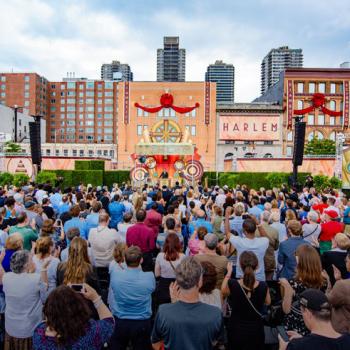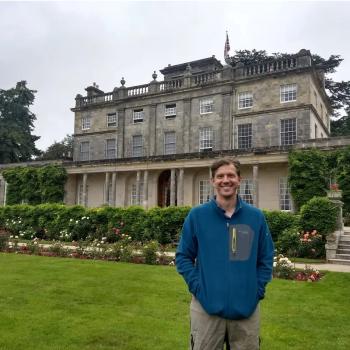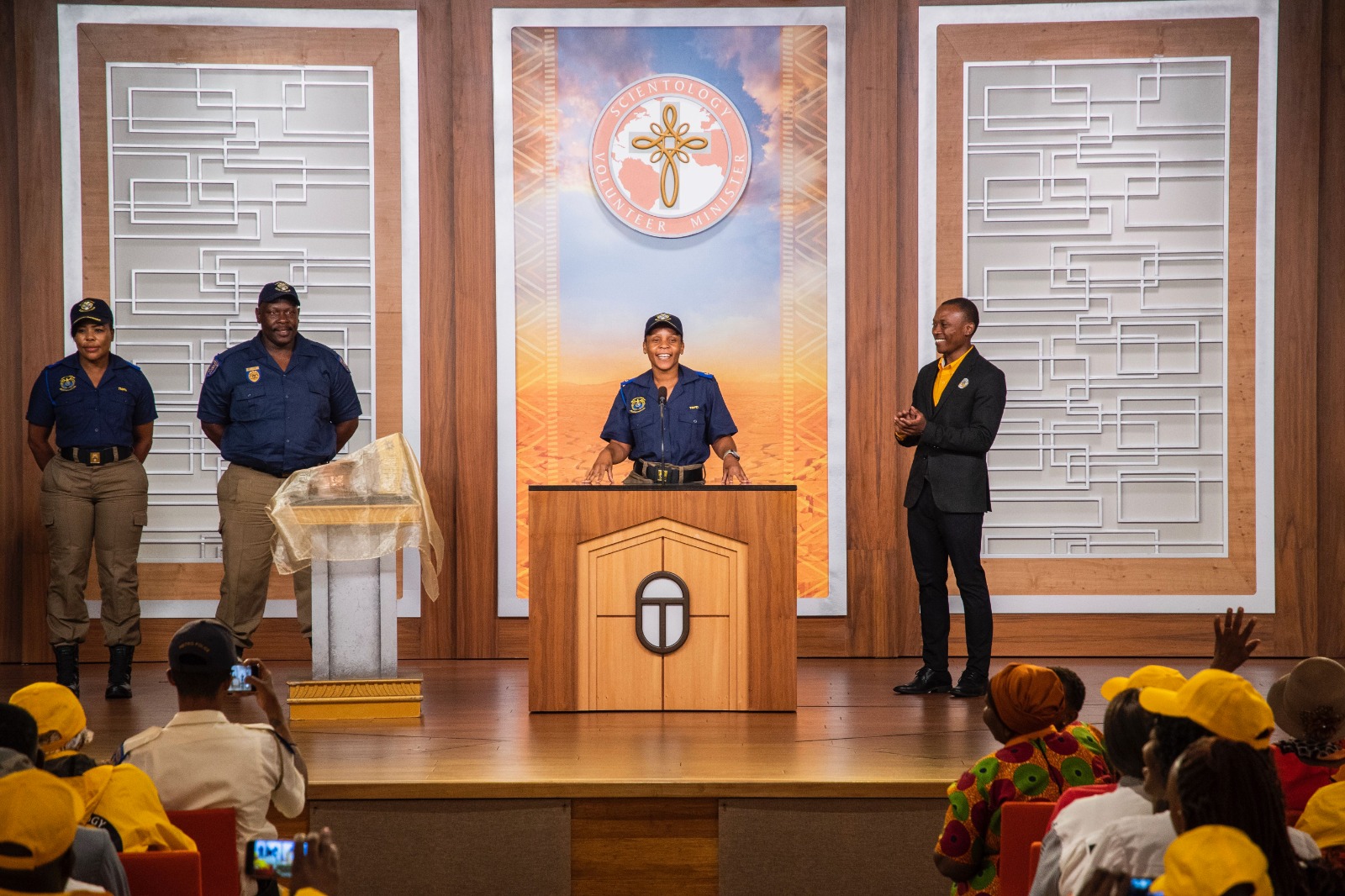The October 8 article and podcast by journalist Steven Zimmerman, “Year of Faith: What is Scientology?” can be read on the El Paso Herald-Post website. The entire article is well worth reading. I’m sharing some of it here:

Like most people, I wanted to know more about Scientology, who they are and what they believe. So, I reached out to the Scientology Mission of El Paso, where I was put in touch with the Mission Holder, Joni Superville.
As we sat down, I began the interview with the obvious question: just what, exactly is Scientology?
“Well,” began Joni, “Scientology is an applied religious philosophy based on the works of L Ron Hubbard. And he gives us a precise path to spiritual awareness for oneself, for the family, for groups, for mankind, for all living things, for the material universe, for spirituality and God.”
The name itself, I was told, is a combination of two words: Scio, which is Latin for “knowing, in the fullest meaning of the word,” and the Greek word logos, which means “study of.” The knowledge or truth of knowing how to know.
“But in Scientology, we don’t tell you what to believe,” said Joni. “Instead, we give you the basic, fundamental principles, and you apply them and see how they work for yourself. So, if it’s true for you, it’s true.”
Ms. Superville went on to say that some of the basic principles include that “we are spiritual beings, our experiences span many lifetimes, and that we are basically good.” She also said that we are far more capable than we seem to be or allow ourselves to be.
…
Next, I asked Joni how Scientology can benefit humanity.
“The answer to that is actually three-fold,” Joni began. “The first is we have a one-on-one counseling technique that we call auditing, and it comes from the Latin word to listen. And so basically, we have someone trained to audit someone, and they address the specific problems that he’s facing and helps the person realize for himself what those answers are. And we don’t preach or evaluate for anyone. He finds his own answers, and we find that that’s very workable. He can cope with his problems better. He’s happier in life after auditing, and he’s just doing a lot better. And then the second way is through education. We have a lot of courses that we offer at all the Churches of Scientology and even online. And so, these courses are the life improvement courses. So, they help individuals say, have a happy marriage, or learn how to bring up children, or raise their own self-esteem, or know who they can trust. Things of that nature.”
…
Joni told me about the effort the Church of Scientology made in passing out booklets to the people of Juarez during the peak of cartel violence that was causing more deaths than those killed in Afghanistan.
“Here along the borderland, we have also made great strides in our community,” said Joni. “What we did is a campaign called the Way to Happiness where we distributed these little booklets with 21 precepts in them for good living. It’s like a moral booklet. And we took those booklets to what is in the height of their criminal chaos over there. And we got them there. And as a result, we saw a decrease in crime, and the exact same program was done in Columbia with the exact same results. So anywhere you see Scientology being applied, you’re going to see success.”
Over three weeks, during my regular trips to Juarez, I wanted to see if I could find anyone who had read the booklets given out and if it had effected a change in their lives. That’s when I met Pedro De La Cruz.
Pedro has lived in Juarez his whole life. As he’ll tell you, the city has seen many changes, all the cause of violence.
“The people who give to me the small book,” said Pedro, “were for making a change from peace and not violence.”
Pedro (whose name has been changed for reasons that will become obvious) told me about his son, Mundo.
“Mundo was for bad things,” said Pedro. “He had for himself dreams of owning a business. As he grew to manhood, he took for himself the wrong type of friends.”
Mundo began to run with members of a gang that served the cartels.
“His mother would cry in the night because he would not make his way home,” said Pedro. “My son thought manhood was behind a gun. I was feeling I had failed him and failed my family.”
Pedro, a cab driver, told me that one day, he was outside a Zippy pharmacy, waiting for a fare. As he was standing there, a couple of people approached him and began to speak with him.
“I thought they were needed to be taken to some stores or places for the tourist,” said Pedro. “It was not a time for vacations in our city.”
“They want to give me this book. This thing to be reading in my spare time. I needed to make an earning, not to be having something to clutter the car,” recalled Pedro.
Over the next few days, as he was waiting for fares, he began to read the book.
“I learn some of this from the priest,” says Pedro, “but here was more!”
Throughout the month, Pedro read and reread the booklet. He began to follow the principals taught within. As his life and way of thinking were changing, his family noticed.
“My wife says I become more of a person you can depend on. I was keeping the word and promises I would make to others,” said Pedro. “Mundo, my son, when he would stumble for home, he saw from me the changes.”
One day, when Mundo was home, drunk and passed out in the small living room, Pedro left the little book by the couch. “I wanted him maybe see something there.”
Pedro says he never knew if his son was reading the booklet or not, but he was seeing some changes.
“My wife, she was not spending most nights crying. Mundo started home most of the nights,” recalls Pedro.
In the end, Pedro said that Mundo was reading The Way to Happiness. He related how he came home one evening and found Mundo playing with his younger brothers and sisters. On the kitchen table was the Way to Happiness book.
“I picked it up,” said Pedro. “It was dirty, pages folded and from page to page was my son’s small notes.”
When I met Pedro and his family, I would never have believed they had ever worried about their oldest son, or that he spent time in a gang. The only stark reminders are the tattoos and the two visible bullet wounds on Mundo’s arm.
…
“I want you to give you a definition of the Scientologists because that was the question,” said Joni, referring to one of my earlier questions. “A Scientologists then, is essentially one who betters the condition of himself and the condition of others by using Scientology technology. So there again, you see that’s what a Scientologist is. He’s caring for himself and other individuals.”
A Scientologist, as I learned, is one who cares first for himself – betters himself – and then those around him.








